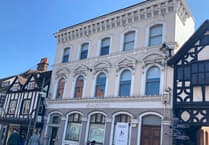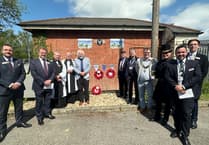It is always a pleasure to welcome young people from East Hampshire to parliament, coming on visits or school trips.
For a few years now (except when interrupted by Covid) I’ve also hosted a two-day Taste of Parliament for local sixth-formers during October half-term.
Little could we have known when setting the dates for this year’s sessions just how significant it would be, falling as they did on Monday and Tuesday last week.
The group of students was in parliament on the day we saw the decisive conclusion to a necessarily short-run leadership contest, and also on Rishi Sunak’s first day as prime minister.
Taste of Parliament is about bringing those with an especially keen interest in politics to Westminster to see and understand more about the role of MPs and the machinery of government.
Parliamentary protocols can often appear opaque, even bemusing, but they are important parts of our governance and democracy and have, on the whole, served us well.
We need young people to be interested in politics, not necessarily to take it up as a vocation or career choice, but to know how they are represented and how they can influence and engage with the decisions made on their behalf, and on the behalf of millions of fellow citizens.
I am always impressed by the students who attend – the questions they pose, typically incisive and often challenging, and the views they share.
The word ‘parliament’ itself, of course, derives from the French for ‘to speak’ – and ultimately that is what parliament is all about, discussing things to try to reach a better outcome as a result.
A theme that runs through the Taste of Parliament sessions is to consider how our oppositional style of democracy is intended to keep everyone on their toes and ensure very thorough scrutiny, a process that continues to be important.
But there is often more agreement across the house than is obvious to observers, and that is something I have always appreciated during my time as an MP.
The ability to work with colleagues through cross-party committees and all-party groups is fundamental to that, though it can be easily overshadowed by other parliamentary exchanges.
The House of Commons is a chamber for discussion and debate, where opposing arguments are aired but decisions can still be reached.
There is never quite a settled consensus, because an opposition, quite rightly, must always be able to oppose.
Our system of parliamentary democracy is by no means perfect, but I know of no other system that is fairer or more transparent. In the past week we have been reminded of one extreme contrast, seeing the proceedings of the Party Congress in China.
With the new prime minister Rishi Sunak now at the helm, we critically need a period of stability and consistency, for greater certainty for families and for business.
The world has been up-ended since the election of December 2019, but we must not lose sight of the ambitions held at that time, albeit the route we take may be different.
I hope the Taste of Parliament students left Westminster with a greater sense of engagement with politics and a greater appreciation for the institution that ultimately represents us all.




